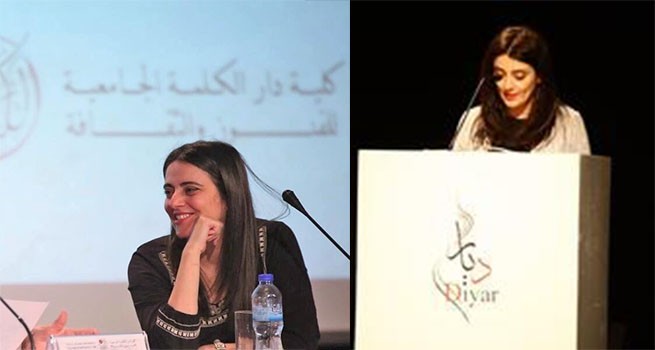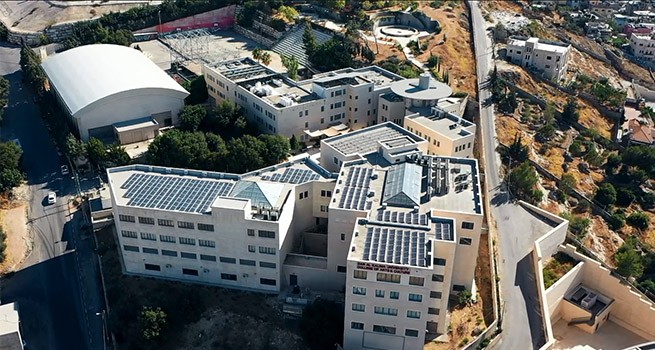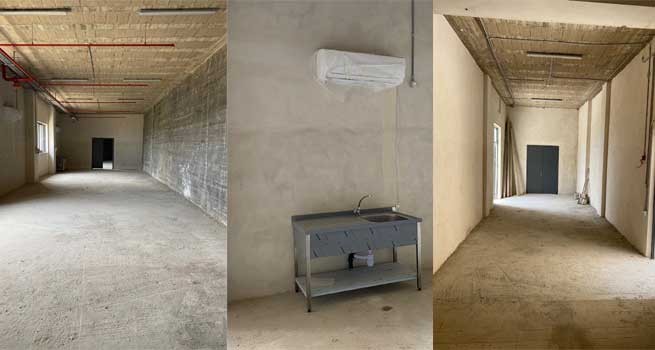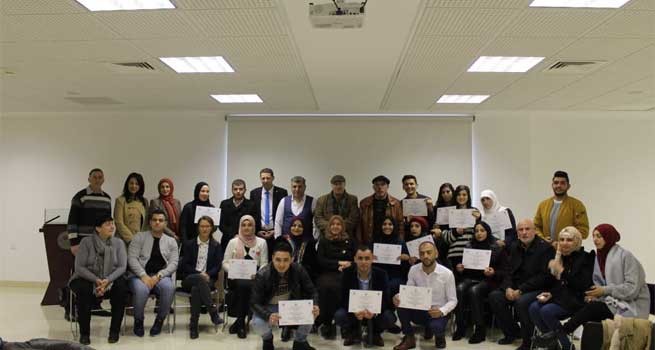Latest News
Sustainability was the chosen theme for the Swiss Palestinian cultural exchange, which was supposed to take place in Bethlehem between May 6th and 25th, 2020. Students from the Lucerne University of Applied Sciences and Arts (https://www.hslu.ch/de-ch/design-kunst) were planning to come to Bethlehem, integrate with the students of Dar al-Kalima University College of Arts & Culture, produce art projects and celebrate the outcomes in a joined exhibition, both in Bethlehem and Lucerne.
Planning was going very smooth until March 5th, 2020, when the first cases holding Covid 19 virus were discovered in Beit-Jala. As a result, the whole of Palestine and specially the Bethlehem governorate went into a quarantine period. As well, the Lucerne University stopped its students from travelling and Switzerland also went into a quarantine.
.jpg)
March was an unusual month during which some projects and courses were suspended, canceled, or examined and transformed to an online practice. The coordinators of the cultural exchange, Marco Schmid, Stephan Wittmer and Faten Nastas Mitwasi had several online meetings and decided to proceed with the project and that “Sustainability” is the best theme for such an era when everything is being doubted, re-assessed and developing further. Sustainability can be explored through the United Nation 17 Sustainable Development Goals, as well as through the personal perception of each one of the participants.
The first online group meeting was on Tuesday morning, April 14th, 2020, through the ZOOM platform. The meetings were very intensive during the first two weeks, focusing on introducing the Palestinian and the Swiss context & culture as well as getting the participants well integrated with each other. In addition to the discussions among the participants, several guest speakers were hosted in order to enrich the dialogue. The Swiss curator, Susann Wintsch gave an interesting coverage about the Palestinian Art. The theologian Martin Steiner spoke about the history of Palestine during the second half of the 20th century. The Palestinian artist, Shareef Sarhan gave a life testimony about his experience being a contemporary artist in Gaza. And Katharina Kossmann spoke about the psychological processes involved in implementing sustainable actions in environmental protection. Besides, Marco Schmid gave a brief view about the Swiss history, culture and politics.
.jpg)
Then, towards the end of April and during May, the participants were guided to develop their own art projects. Some participants succeeded in partnering with others and developing joint projects, while others chose to work independently. On June 4th, all the projects were presented and got feedbacks from the head of the Fine Arts program in Lucerne, Sebastian Utzni, and the director of painting & printmaking department at the Virginia Commonwealth University School of the Arts in Qatar, Dr. Aissa Deebi.
It is amazing to see how diverse and creative the outcomes of this online exchange are. These art works will be celebrated in two exhibitions; first at the Peterskapelle in Lucerne during September and secondly at DAK gallery in Bethlehem during November, when hopefully, the Swiss participants can travel to Palestine and be present during the opening of the exhibition.
.jpg)
It is worth mentioning that the exchange is part of the academic program at the Lucerne University of Applied Sciences and Arts called the “IDA-Modul” (Interdisciplinarity in Design and Arts-Modul), so, it is an accredited course for the Swiss students. There were 12 Swiss students from 6 programs; Graphic Design, Textile, Animation, Design Management, Camera Arts and Fine Arts, with 5 Palestinian participants; 4 graduates from the contemporary art program and 1 student from the Graphic design. The group leader and the initiator of the exchange idea was the Swiss student Marco Schimd, while the supervising faculty were the Swiss professor and artist Stephan Wittmer and the Palestinian academician and artists Faten Nastas Mitwasi and Ahed Izhiman.
Regardless of the quarantine, the language barrier, the distances and the differences; Art has the power to connect people, sustain creativity and keep hope alive. To see the art works and know more about each project, please, visit the following links:
Links will be provided soon







